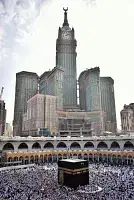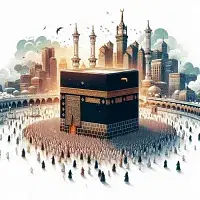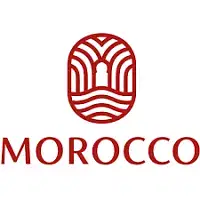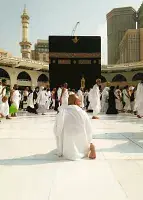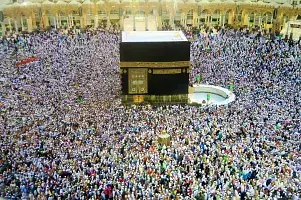Mohammad Al Amin Mosque Travel Guide
Mohammad Al Amin Mosque, located in Beirut, Lebanon, is a prominent landmark known for its stunning architecture and cultural significance. The mosque, named after Imam Mohammad Al Amin, showcases Ottoman architectural style and intricate designs. It stands as a symbol of religious diversity and tolerance in the region. Lebanon, with its rich history dating back to ancient times, offers visitors a unique blend of Mediterranean coastline, mountains, and vibrant city life.Top Attractions in Mohammad Al Amin Mosque
- Visit the Mohammad Al Amin Mosque for its grandeur and spiritual significance.
- Explore the historic streets of Beirut in the nearby Downtown area.
- Discover the Roman ruins at Baalbek, a UNESCO World Heritage Site.
- Indulge in Lebanese cuisine at local restaurants and markets.
- Relax on the beaches along the Mediterranean coast.
Mohammad Al Amin Mosque is Famous for
Its remarkable Ottoman architecture and cultural importance make Mohammad Al Amin Mosque a must-visit destination in Beirut.Top Attractions in Mohammad Al Amin Mosque
- Marvel at the stunning architecture of Mohammad Al Amin Mosque.
- Explore the vibrant streets of Beirut's Downtown area.
- Visit the National Museum of Beirut for a glimpse into Lebanon's history.
- Take a day trip to the picturesque town of Byblos.
- Enjoy the nightlife and entertainment options in Beirut.
What's Great about Travelling to Mohammad Al Amin Mosque?
- Experience the blend of history, culture, and modernity.
- Enjoy delicious Lebanese cuisine and hospitality.
- Explore diverse landscapes from mountains to beaches.
- Witness the coexistence of different religious and cultural influences.
What's Not So Great about Travelling to Mohammad Al Amin Mosque?
- Some areas may be crowded, especially during peak tourist seasons.
- Language barriers can be challenging for non-Arabic speakers.
- Certain regions may have political instability, so check travel advisories.
- Local transportation options may be limited in some areas.
Travel Tips for Mohammad Al Amin Mosque
- Check visa requirements before traveling to Lebanon.
- Use reputable transportation services or rent a car for convenience.
- Respect local customs and dress modestly when visiting religious sites.
- Be cautious of pickpockets in crowded areas and keep valuables secure.
Important Mohammad Al Amin Mosque trip information
- Ideal Duration: A few days to a week to explore Beirut and its surroundings.
- Best Time to Visit: Spring (April to June) and Fall (September to November) for pleasant weather.
- Nearby Airports and Railway Stations: Beirut-Rafic Hariri International Airport is the main airport, and Beirut Railway Station serves as a transportation hub.
Per Person
94,000
*EXCLUDING APPLICABLE TAXES 5.0 Ratings
( 44 Reviews )
( 44 Reviews )
Per Person
54,999
*EXCLUDING APPLICABLE TAXES 5.0 Ratings
( 44 Reviews )
( 44 Reviews )
Per Person
1,60,000
*EXCLUDING APPLICABLE TAXES 5.0 Ratings
( 57 Reviews )
( 57 Reviews )
Per Person
24,999
*EXCLUDING APPLICABLE TAXES 5.0 Ratings
( 44 Reviews )
( 44 Reviews )
Per Person
70,000
*EXCLUDING APPLICABLE TAXES 5.0 Ratings
( 44 Reviews )
( 44 Reviews )
FAQ's on Mohammad Al Amin Mosque
Q1: What is the best time to visit Mohammad Al Amin Mosque?
The best time to visit Mohammad Al Amin Mosque is during the spring and fall months when the weather is mild and pleasant. These seasons offer comfortable temperatures for exploring the mosque and the surrounding area without the extreme heat of summer or cold of winter. Additionally, visiting during religious holidays or special events can provide a unique cultural experience.
Q2: Do I need a visa to travel to Mohammad Al Amin Mosque?
Visa requirements for Mohammad Al Amin Mosque vary depending on your nationality. Most tourists will need to obtain a tourist visa before traveling to the country. It is recommended to check with the embassy or consulate of Mohammad Al Amin Mosque for the most up-to-date visa information. Some nationalities may be eligible for visa exemptions or visa on arrival.
Q3: What are the must-visit attractions in Mohammad Al Amin Mosque?
The Mohammad Al Amin Mosque is a must-visit attraction in the country, known for its stunning architecture and cultural significance. Other popular attractions include historic sites, vibrant markets, and scenic landscapes. Be sure to explore the local culture, cuisine, and traditions during your visit.
Q4: Is Mohammad Al Amin Mosque a safe place to travel?
Mohammad Al Amin Mosque is generally a safe destination for travelers. However, like any other place, it is essential to be cautious and aware of your surroundings. Avoiding isolated areas at night and taking necessary safety precautions can help ensure a safe and enjoyable trip. It is also advisable to follow any travel advisories issued by your government.
Q5: What is the local currency in Mohammad Al Amin Mosque and can I use credit cards?
The local currency in Mohammad Al Amin Mosque is the . While credit cards are accepted in major establishments like hotels and restaurants, it is recommended to carry cash for smaller vendors and markets. ATMs are widely available in urban areas for convenient currency exchange.
Q6: What is the local cuisine like in Mohammad Al Amin Mosque?
The local cuisine in Mohammad Al Amin Mosque is a delightful mix of Middle Eastern flavors, with dishes like kebabs, falafel, hummus, and fresh salads. Seafood is also popular due to the country's coastal location. Vegetarians and vegans will find plenty of options, and foodies can indulge in delicious desserts like baklava and knafeh.
Q7: What transportation options are available in Mohammad Al Amin Mosque?
Transportation options in Mohammad Al Amin Mosque include public buses, taxis, and car rentals. Public transport is affordable and convenient for getting around cities, while taxis are readily available for short distances. Renting a car is ideal for exploring more remote areas and enjoying the scenic countryside.
Q8: Are there any cultural norms or etiquette I should be aware of when visiting Mohammad Al Amin Mosque?
When visiting Mohammad Al Amin Mosque, it is essential to dress modestly and respectfully, especially when entering religious sites. It is customary to remove your shoes before entering mosques and to ask for permission before taking photographs of locals. Respect local customs and traditions, such as greeting people with a handshake and being mindful of cultural sensitivities.
Q9: I am a travel agent. How can I buy travel leads of Mohammad Al Amin Mosque?
Register yourself as a travel agent at agents.tripclap.com and then you can buy travel leads to Mohammad Al Amin Mosque once your account is approved. For more details contact our support team at +91-8069186564 or support@tripclap.com
